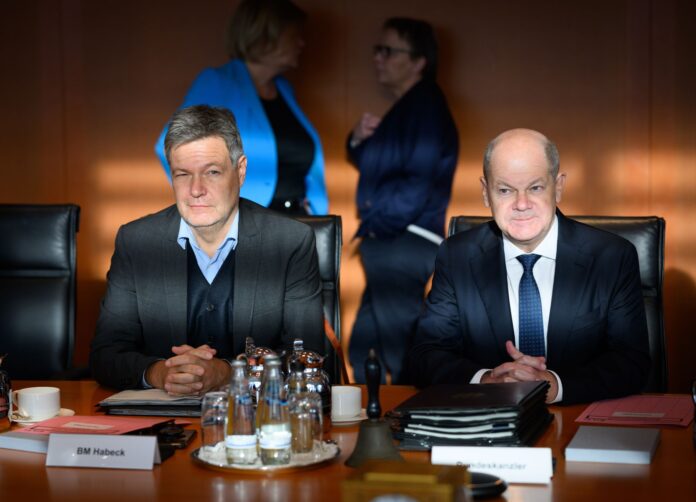Agency Report –
German Chancellor Olaf Scholz on Thursday defended his government’s decisions in 2022 regarding the country’s nuclear phase-out before the Committee of Inquiry, affirming that the exit from nuclear energy was the right move.
Scholz told the committee that extending the operating life of nuclear power plants would have contradicted the long-standing consensus of previous governments.
The committee has been investigating the German government’s decision-making processes regarding adjustments to the national energy supply in response to changes in the supply situation since the start of Russia’s war against Ukraine in 2022.
Initially, Germany planned to shut down its last three reactors by the end of 2022. However, the Russian invasion of Ukraine triggered a debate over energy security, leading to a delay in the phase-out to April 2023.
Scholz reflected on the October 2022 meeting with nuclear operators and the ministers for finance and economy, which led to the decision to keep nuclear plants running until mid-April 2023.
“My goal was to secure the energy supply under all circumstances,” he explained. Scholz stressed that the issue was a matter for both the environment and economic ministries, which were tasked with evaluating the continued use of nuclear plants in a neutral manner.
However, Environment Minister Steffi Lemke and Economy Minister Robert Habeck, both from the Green Party, have been accused by their critics of making decisions based on ideology rather than impartial assessment and of failing to fully consider the possibility of longer operation periods.
This is a key focus of the Committee of Inquiry, which began its work in July 2024.
The committee concluded its hearings late on Thursday with Scholz’s and Habeck’s testimonies.
Scholz was the final witness, answering questions from members of parliament late into the evening, following nearly nine hours of questioning directed at Habeck.
The centre-right CDU/CSU bloc, which had called for the inquiry, said that the decisions regarding the continued operation of the last three German nuclear power plants in 2022 were ultimately driven by ideology.
“All key figures in these ministries are ideologically appointed, which is why, from our perspective, an open-ended review was never possible,” said CSU politician Andreas Lenz, referencing the Economy Ministry and the Environment Ministry.
Habeck accused the committee of pursuing a specific agenda rather than seeking valuable insights for decision-making.
“If the committee is being used to fuel this pro-nuclear debate, I believe that would be inappropriate,” he stated after his questioning. Despite his concerns, Habeck said that, overall, he felt he had been treated fairly during the proceedings.




